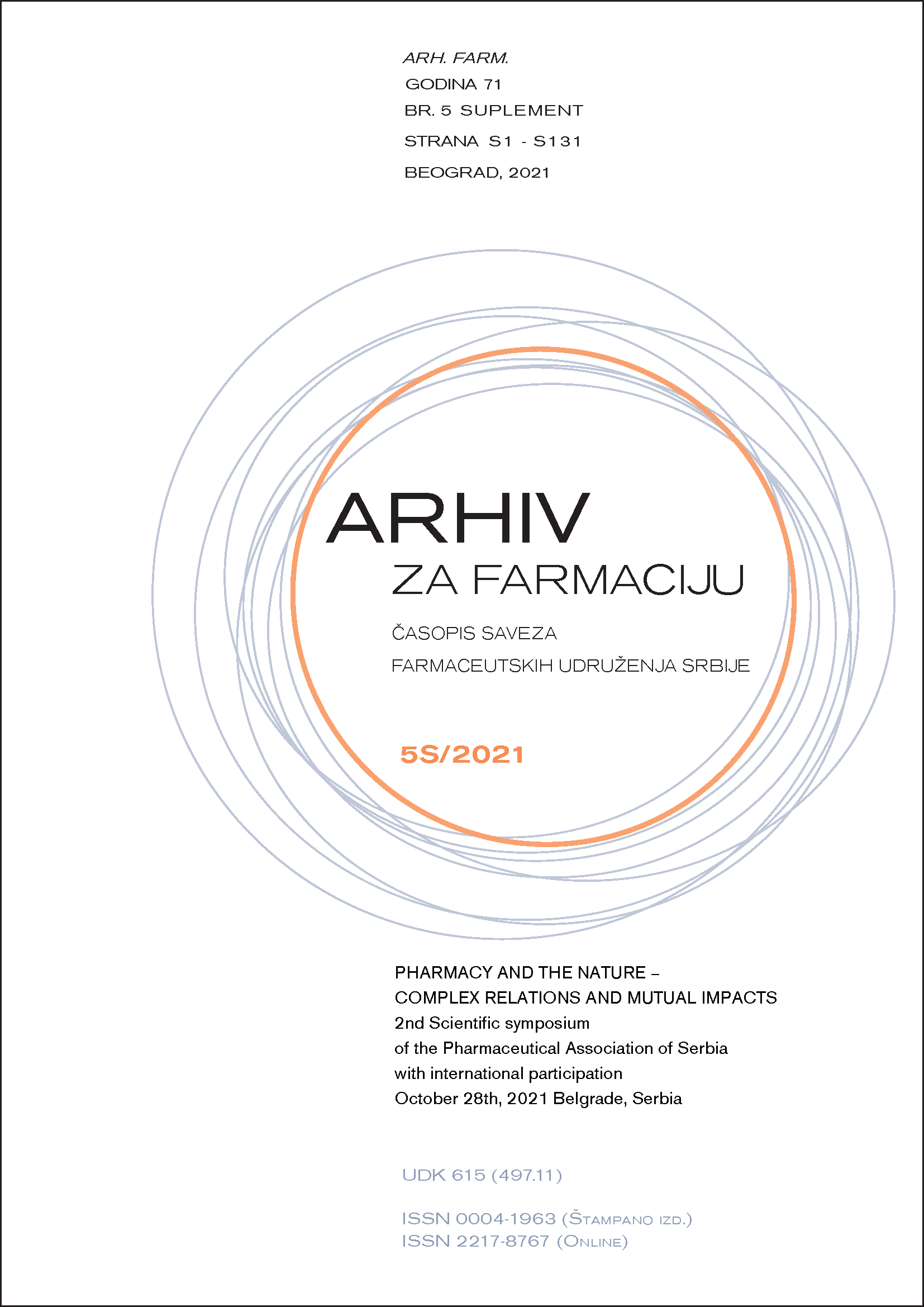ORGANIC AND NATURAL COSMETIC PRODUCTS - WHO BENEFITS THE MOST?
Abstract
A demand for natural cosmetic products is increasing, especially in the EU countries and the rest of the world, as the consumer awareness has increased for the preservation of the environment and natural resources, but above all with the belief that these products are safe and “healthy”. The current regulations on cosmetic products in the EU and the Republic of Serbia do not recognize organic and natural cosmetic products as a special category, so these products must meet all the requirements of these regulations in terms of quality, efficacy and safety. However, due to the great interest of consumers and manufacturers, there is a need to adopt special (additional) requirements for organic and natural cosmetic products. Although, for now, there are no mandatory international regulations in this area, the most important standards are: COSMOS, NATRUE and ISO 16128 (1-3).
Despite certain differences, these standards stand out in terms of their main objectives: promoting the use of organic agriculture products, and respecting biodiversity, responsible use of natural resources and respecting the environment, using processing and manufacturing that are clean and respectful of human health and the environment, and integrating and developing the concept of "Green Chemistry" (3).
Organic and natural cosmetic products are made from selected raw materials, most often of plant origin, that are allowed for their production and processed with permitted physical and chemical processes. The use of ingredients of animal origin is also allowed, if that ingredient is produced by an animal naturally (it must not be part of an animal), such as lanolin, beeswax, honey. The use of the ingredient from petrochemical origin (liquid and solid paraffin, petrolatum/ white soft paraffin), silicone oils, nanomaterials, ingredients that are GMOs, synthetic fragrances, dyes and preservatives are forbidden (1).
Great attention is paid to the packaging of organic and natural cosmetic products. The amount of packaging material should be reduced to the minimum necessary, and the amount of packaging material that can be reused or recycled should be increased. The use of plastic materials (PVC, polystyrene, etc.), which are not biodegradable is forbidden (3).Today, the quality, efficacy and safety of all cosmetic products are taken for granted. However, the use of organic and natural cosmetic products has a great impact on the preservation of the environment and natural resources. The adoption of binding international legal regulations in this area is very important.

